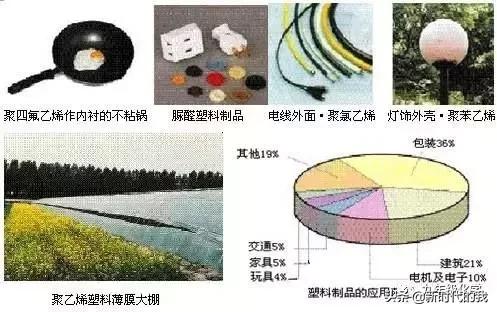魏学洢·《核舟记》英译
明有奇巧人曰王叔远,能以径寸之木,为宫室、器皿、人物,以至鸟兽、木石,罔不因势象形,各具情态。尝贻余核舟一,盖大苏泛赤壁云。
舟首尾长约八分有奇,高可二黍许。中轩敞者为舱,箬篷覆之。旁开小窗,左右各四,共八扇。启窗而观,雕栏相望焉。闭之,则右刻“山高月小,水落石出”,左刻“清风徐来,水波不兴”,石青糁之。
船头坐三人,中峨冠而多髯者为东坡,佛印居右,鲁直居左。苏、黄共阅一手卷。东坡右手执卷端,左手抚鲁直背。鲁直左手执卷末,右手指卷,如有所语。东坡现右足,鲁直现左足,各微侧,其两膝相比者,各隐卷底衣褶中。佛印绝类弥勒,袒胸露乳,矫首昂视,神情与苏黄不属。卧右膝,诎右臂支船,而竖其左膝,左臂挂念珠倚之,珠可历历数也。
舟尾横卧一楫。楫左右舟子各一人。居右者椎髻仰面,左手倚一衡木,右手攀右趾,若啸呼状。居左者右手执蒲葵扇,左手抚炉,炉上有壶,其人视端容寂,若听茶声然。
其船背稍夷,则题名其上,文曰:“天启壬戌秋日,虞山王毅叔远甫刻”,细若蚊足,钩画了了,其色墨。又用篆章一文曰“初平山人”,其色丹。
通计一舟,为人五;为窗八;为箬篷,为楫,为炉,为壶,为手卷,为念珠各一;对联、题名并篆文,为字共三十有四。而计其长曾不盈寸。盖简桃核修狭者为之。
魏子详瞩既毕,诧曰:嘻,技亦灵怪矣哉!《庄》《列》所载,称惊鬼犹神者良多,然谁有游削于不寸之质,而须麋了然者。假有人焉,举我言以复于我,亦必疑其诳,乃今亲睹之。繇斯以观,棘刺之端,未必不可为母猴也。嘻,技亦灵怪矣哉!

A Boat Carved on a Nutshell
Wei Xuyi
In the Ming Dynasty a marvellous craftsman, Wang Shuyuan by name, was capable of carving on a piece of wood, one cun in diameter, palaces, vessels, persons, even birds, beasts, forest and stones, all following the configuration of the wood to bring out the different shapes, each having its distinctive features. He gave me a boat cut on a nutshell as a gift, which presented the scene of Su Dongpo’s boating at the Red Cliff.
The boat is eight-odd fen in length from prow to stern and is about the height of two grains. The wider and higher part in the middle is the hold covered with a bamboo awning. Each side of the boat is furnished with four small windows, eight for both. Through an opened window one can see two decorated railings facing each other. When the windows are closed, one reads on the right: “The mountain is high and the moon looks small; the water subsides and the stones stand out.”, while on the left the couplet reads: “A fresh breeze is gently blowing and the waves are utterly calm.” All the words are coloured in azurite.
The prow is occupied by three men. The one in the middle, wearing a tall headgear and bristling with moustache, is Su Dongpo, while the one on the right is Foyin the monk, and the one on the left is Huang Luzhi the poet. Su and Huang are perusing a scroll. The former is holding one end of it with the right hand, while stroking the latter on the back with the left. Huang in turn is holding the other end of the scroll with the left hand, pointing at it with the right, and seems to be muttering some comments. Su is showing his right leg, Huang his left. Both are slightly inclined, with their knees touching and hidden in their robes’ folds, under the scroll. The monk is the very image of a Buddha, revealing his breast and nipples and looking up to the sky with his cocked head. His hairs and manner have nothing to do with Su and Huang, as he is seen stretching horizontally his right leg, and supported with his right arm on the gunwale, while bending his left leg with the knee turned upward. On his left arm hangs down to the knee a string of beads, which are distinct enough to be counted one by one.
Across the stern ties an oar, manned by one boatman on each side. The one on the right with a cone-shaped chignon and an upturned face is leaning on a horizontal beam with the left hand, and touching a right toe with the right, looking as if he were crying or shouting. The other on the left is holding a fan with his right hand, while laying his left hand on a stove, on which is put a kettle. He is looking straight at it staidly, as if he were attentive to the boiling water.
The bottom of the boat is rather even, cut with the inscription: “Carved in the autumn of the year Renxu during the Tianqi period by Wang Shuyuan of Yushan”. The words are as thin as mosquito legs, yet the strokes are inked and clear enough. In addition, there is a seal cut in the Zhuan calligraphic style with the author’s cognomen: “the Mountain Recluse Chuping”, coloured in Red.
To sum up, the nutshell contains one boat, five persons, eight windows, an awning, an oar, a stove, a kettle, a scroll and a string of beads, apart from couplets, inscriptions and a seal cut in the Zhuan calligraphic style, totaling thirty four ideograms. Yet the length of it is no more than one cun. All this is done by using a selected slender and tiny nutshell.
Having scrutinized it carefully, I exclaimed with great wonder: Hey, what a miraculous feat of art! Zhuangzi and Liezi certainly describe a great many tours de force which are as amazing as if they were the workings of gods and ghosts. But who has ever been able to operate his chisel within a substance less than one square cun in area and make the things so carved distinct to the smallest details? If there should be someone repeating to me what I have said, I would also suspect him of telling a lie. But now I have seen the work with my own eyes. Judging from this, it is by no means beyond the bounds of possibility to make a she monkey out of the end of a thorn. Hey, what a marvellous skill!(谢百魁 译)
,




